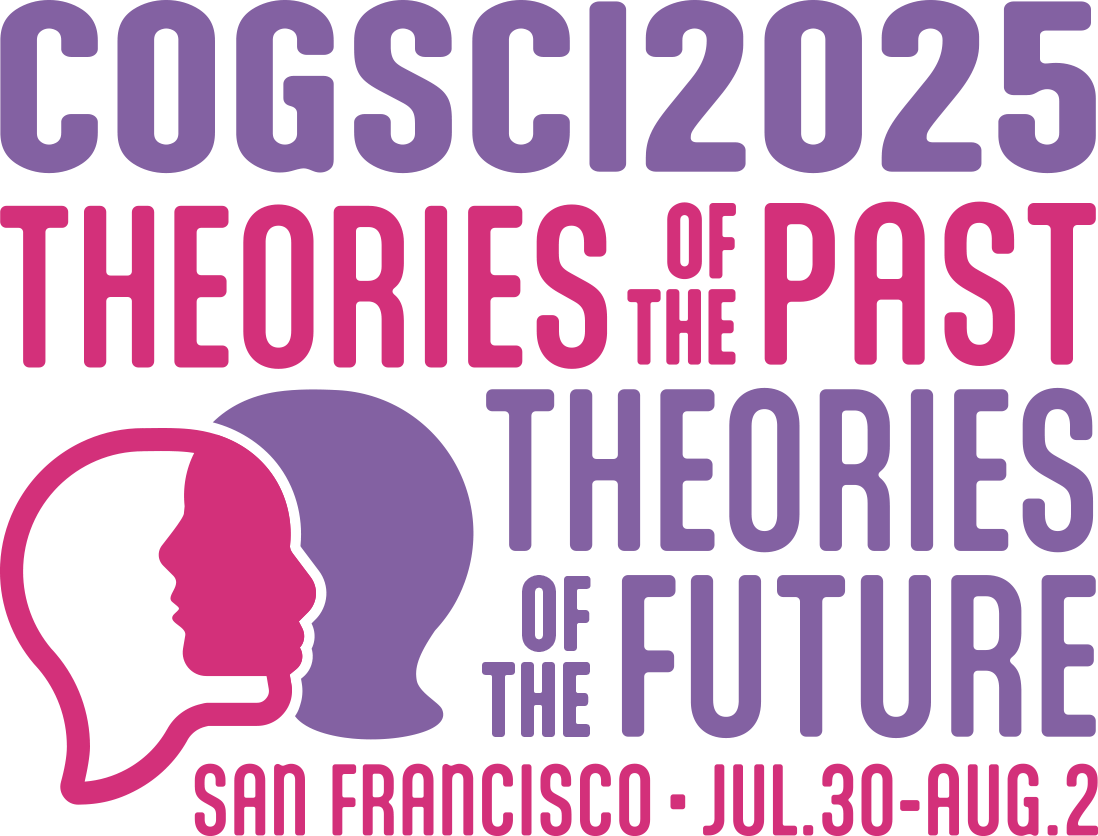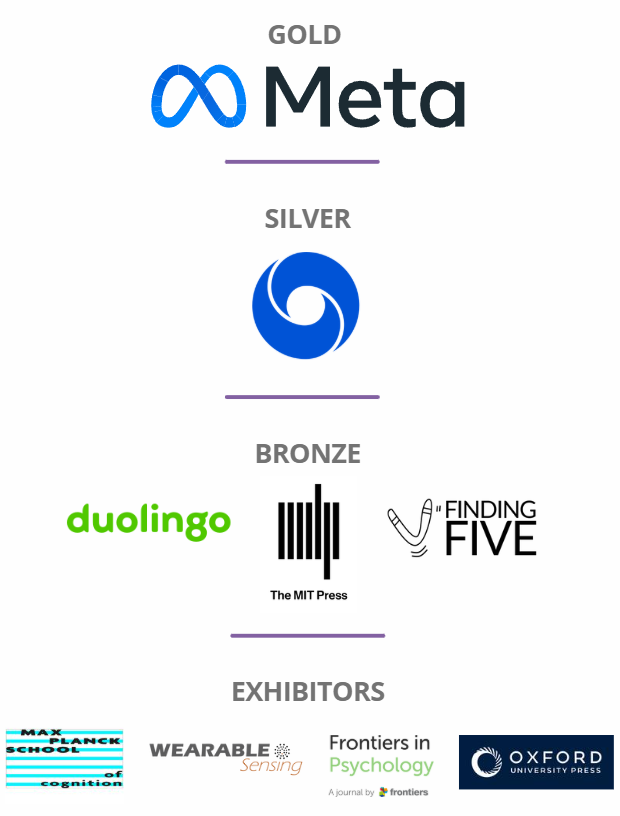Program Chairs
David Barner, University of California, San Diego
Neil Bramley, University of Edinburgh
Azzurra Ruggeri, Central European University
Caren Walker, University of California, San Diego

Program
Download Full Program
Visit Online Proceedings
On Demand Service:
View all presentations on Underline – available until July 2026
2025 Conference Awards
Marr Prize
Nathaniel Braswell, Yale University
Wild Possibilities: Evidence of Modal Cognition in Free-Ranging Rhesus
COMPUTATIONAL MODELING PRIZES
Siddharth Suresh and Kushin Mukherjee, University of Wisconsin Madison *co-first authors*
HIGHER-LEVEL COGNITION
Ziwei Cheng, University of California, Berkeley
LANGUAGE
Neil Rathi, Stanford University
PERCEPTION & ACTION
Shuze Liu, Harvard University
SAYAN GUL AWARD
Eric Wang, The Chinese University of Hong Kong
Emotion influences behavioral outcomes and attention during goal directed reading
Graduate Student Awards
Hemali Angne, Rutgers University
Koorosh Ariyaee, University of Toronto
Shuting Chen, University of Edinburgh
Ivette Colón, University of Wisconsin
Calvin Deans-Browne, University College London
Khuyen N. Le, University of California, San Diego
Parth Maradia, International Institute of Information Technology, Hyderabad
Zeynep Marasli, University of Illinois, Champaign-Urbana
Glen W. Spiteri, University of California, Los Angeles
Christina Steele, Harvard University
DIVERSITY & SOCIAL INEQUALITY AWARDS
Wei Xie, College of Computer Science and Technology, National University of Defense Technology, Chang Sha, China
AIPsychoBench: Understanding the Psychometric Differences between LLMs and Humans
Disciplinary Diversity & Integration Award
2025 SYMPOSIA WINNERS
Claire Bergey, Stanford University
Naturalistic Oobservation of Language Development Outside the Home
Reut Shachnai, Yale University
The Cognitive Science of Caregiving
2025 PAPER WINNERS
Junsong Lu, University of California, San Diego
A Normative Model of Delay Discounting Across the Lifespan: Tradeoffs Between Mortality, Fertility, and Parenting
Warren Zhu, University of Toronto
Visual Moral Inference and Communication
Sponsors and Exhibitors

![]()
The Cognitive Science Society is pleased to announce the establishment of the CogSci Grove which aims to mobilise cognitive scientists to offset carbon emissions associated with their professional activities.